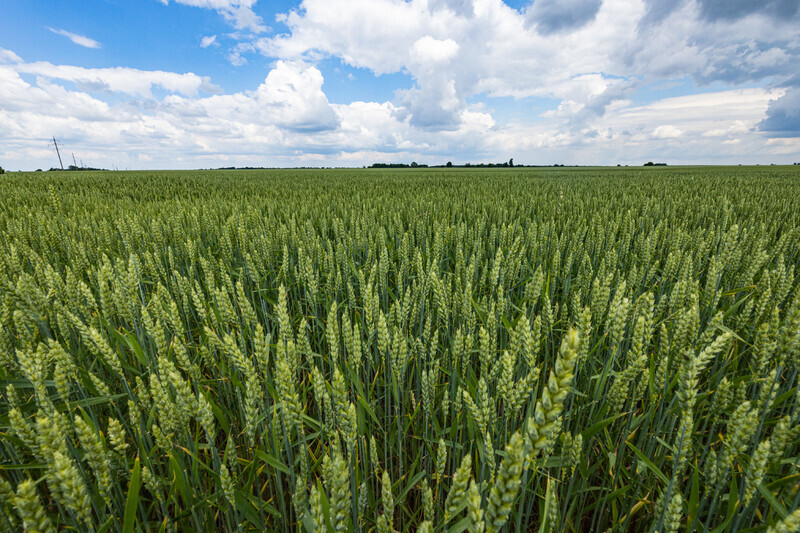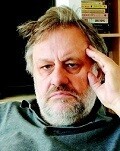hankyoreh
Links to other country sites 다른 나라 사이트 링크
[Column] Between two colonizations


By Slavoj Žižek, Global Eminent Scholar at Kyung Hee University
Everybody knows that Volodymyr Zelenskyy first played a Ukrainian president in a popular TV series “The Servant of the People,” and then became one. Those who are close to Zelenskyy claim that, upon becoming a president, he effectively tried to live up to his role in the TV series. But did he succeed? One thing is sure: The image of Ukraine in Zelenskyy’s TV series fully fits reality.
Of all the post-Communist countries in Eastern Europe, Ukraine has been hardest hit by the “shock therapy” of capitalist restoration. During the 30 years after independence, incomes and quality of life have remained below 1990 levels, poverty ran rampant (worse than much-decried Belarus), law enforcement totally failed in curbing corruption, and courts were a farce. In short, the “conversion” to capitalism has followed the usual pattern: A class of oligarchs and a narrow elite have enriched themselves disproportionately by despoiling the public sector with the complicity of the political class. If we add to this the strings attached to the financial help from the West, a very sad picture emerges. This, not a thriving democracy, is the land Russia invaded.
From my links in Russia (who, for obvious reasons, have to remain anonymous), I learned that Putin organized a group of Marxists to counsel him on how to present Russia’s position in the Third World. One can find traces of such a “Marxist” approach in Putin’s speech on Aug. 16:
“The situation in the world is changing dynamically and the outlines of a multipolar world order are taking shape. An increasing number of countries and peoples are choosing a path of free and sovereign development based on their own distinct identity, traditions and values. These objective processes are being opposed by the Western globalist elites, who provoke chaos, fanning long-standing and new conflicts and pursuing the so-called containment policy, which in fact amounts to the subversion of any alternative, sovereign development options.”
We mustn’t let this “Marxist” image deceive us. “The subversion of any alternative, sovereign development options” — is Russia not doing exactly this in Ukraine, or does Ukraine not deserve this option? Putin’s rhetoric is a key component of all alt-right movements all around the world. In France, Marine Le Pen presents herself as the protector of ordinary working people against the big international corporations which promote multiculturalism and sexual depravity to undermine national identities. In the US, Steve Bannon advocates the coalition of alt-right with radical left as the only way to beat the reign of financial and digital elites
There is another aspect of what goes on in Ukraine that deserves much greater attention.
In the conditions of global warming and other ecological disturbances, possession of fertile land is viewed as a very important asset. That’s why Bill Gates and other billionaires invest a good part of their wealth into owning large agricultural estates or forests. And fertile land is the greatest asset of Ukraine — its fields are full of chernozem (“black earth”), a black-colored soil containing a high percentage of humus that can produce high agricultural yields. No wonder, then, that, for decades, big corporations have shown great interest in acquiring land in Ukraine — at least one-third of it is already owned by big American and Western European companies.
The good news brought by the horrors of war is that the ongoing war seems to disrupt the current grand neoliberal project in the short term. Since war demands social mobilization and coordination of production, it offers a unique chance to put a brake on this process, as well as a chance to get rid of the excesses of corruption and oligarchy which were abundant in Ukraine after it gained sovereignty. But will Ukraine be able to take advantage of this chance? The cruel irony is that, while Russia is now colonizing Ukraine with the brutal force of arms, there is a morsel of truth in Russia’s claim that, after 1990, Ukraine was a Western economic colony.
Even if Ukraine will — hopefully — protect its independence, its victorious defense will be its moment of truth. They will have to learn the lesson that it is not enough for them to catch up with the West and join the EU for two reasons. First, Western democracy is itself in a deep crisis, there is a deep discontent broiling — the US is veering toward an ideological civil war, Europe is falling apart with post-Communist countries getting close to a new illiberal authoritarianism incompatible with the basic values of the EU. Second, will victorious Ukraine, deeply indebted to the US and EU, be able to resist an even stronger pressure to become economically colonized by the big Western powers, so that its freedom will be largely limited to cultural matters?
This struggle is already underway. We can only hope that, as it often happened with Western help to the countries struggling for freedom and democracy, the final result will not be neoliberal colonization. To achieve this, Ukraine will have to reinvent itself, not just trying to catch up with the West. To be an economic colony of the West is definitely better than to disappear as a nation in the new Russian empire, but it is simply not good enough, not worthy of the suffering Ukraine is going through now.
Please direct questions or comments to [english@hani.co.kr]

Editorial・opinion
![[Guest essay] Preventing Korean Peninsula from becoming front line of new cold war [Guest essay] Preventing Korean Peninsula from becoming front line of new cold war](https://flexible.img.hani.co.kr/flexible/normal/500/300/imgdb/original/2024/0507/7217150679227807.jpg) [Guest essay] Preventing Korean Peninsula from becoming front line of new cold war
[Guest essay] Preventing Korean Peninsula from becoming front line of new cold war![[Column] The state is back — but is it in business? [Column] The state is back — but is it in business?](https://flexible.img.hani.co.kr/flexible/normal/500/300/imgdb/original/2024/0506/8217149564092725.jpg) [Column] The state is back — but is it in business?
[Column] The state is back — but is it in business?- [Column] Life on our Trisolaris
- [Editorial] Penalties for airing allegations against Korea’s first lady endanger free press
- [Editorial] Yoon must halt procurement of SM-3 interceptor missiles
- [Guest essay] Maybe Korea’s rapid population decline is an opportunity, not a crisis
- [Column] Can Yoon steer diplomacy with Russia, China back on track?
- [Column] Season 2 of special prosecutor probe may be coming to Korea soon
- [Column] Park Geun-hye déjà vu in Yoon Suk-yeol
- [Editorial] New weight of N. Korea’s nuclear threats makes dialogue all the more urgent
Most viewed articles
- 1[Guest essay] Preventing Korean Peninsula from becoming front line of new cold war
- 260% of young Koreans see no need to have kids after marriage
- 3Yoon’s broken-compass diplomacy is steering Korea into serving US, Japanese interests
- 4After 2 years in office, Yoon’s promises of fairness, common sense ring hollow
- 5[Column] Why Korea’s hard right is fated to lose
- 6S. Korean first lady likely to face questioning by prosecutors over Dior handbag scandal
- 7Is Japan about to snatch control of Line messenger from Korea’s Naver?
- 8[Column] The state is back — but is it in business?
- 946% of cases of violence against women in Korea perpetrated by intimate partner, study finds
- 10[Column] The first year of war in Ukraine